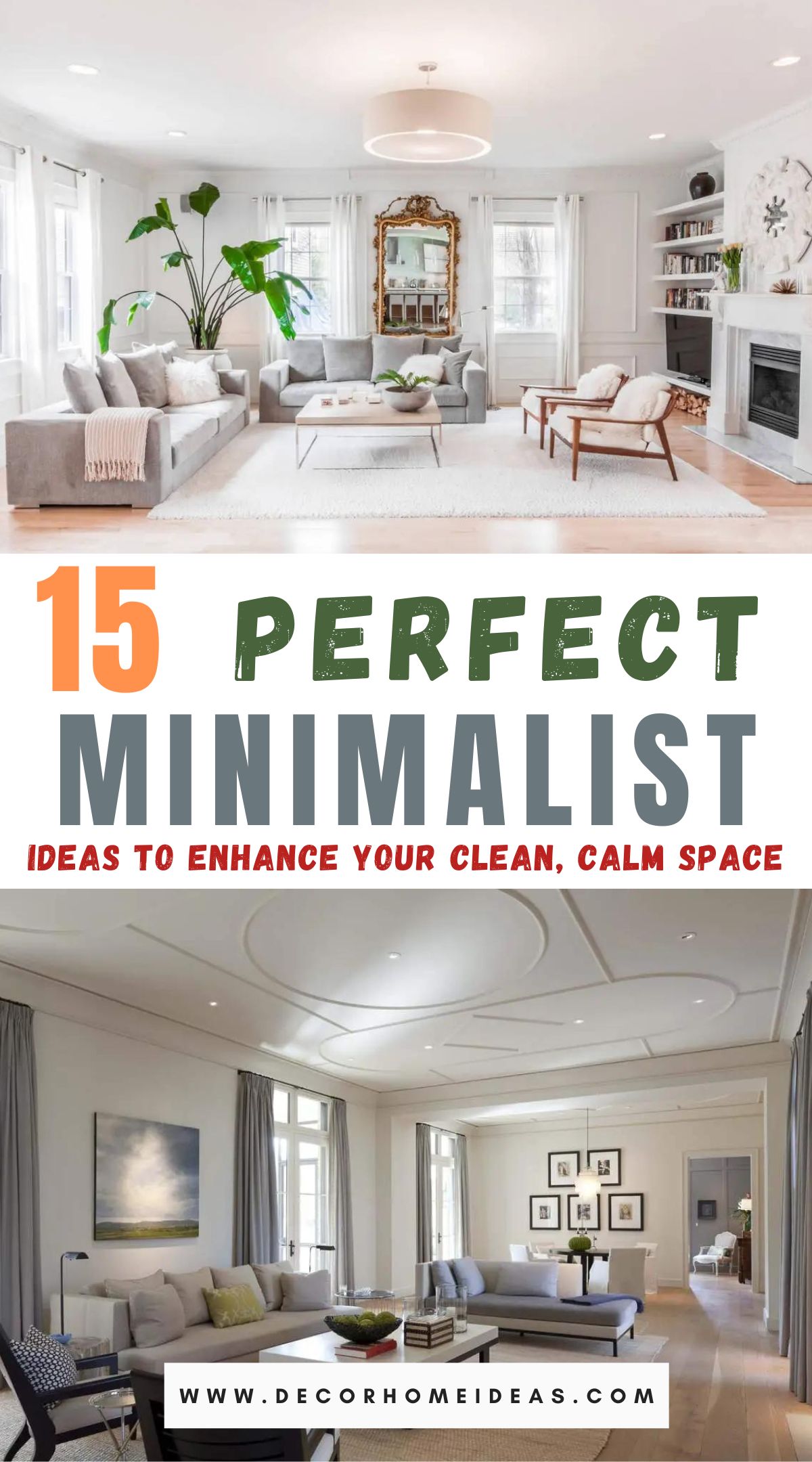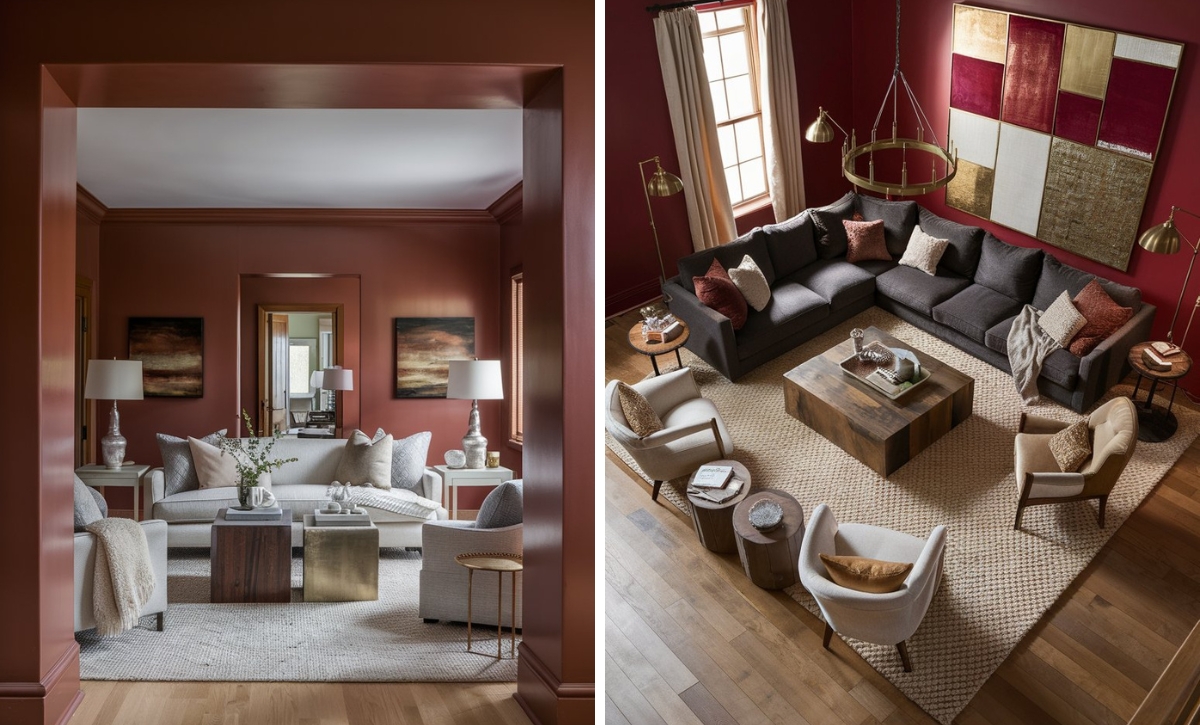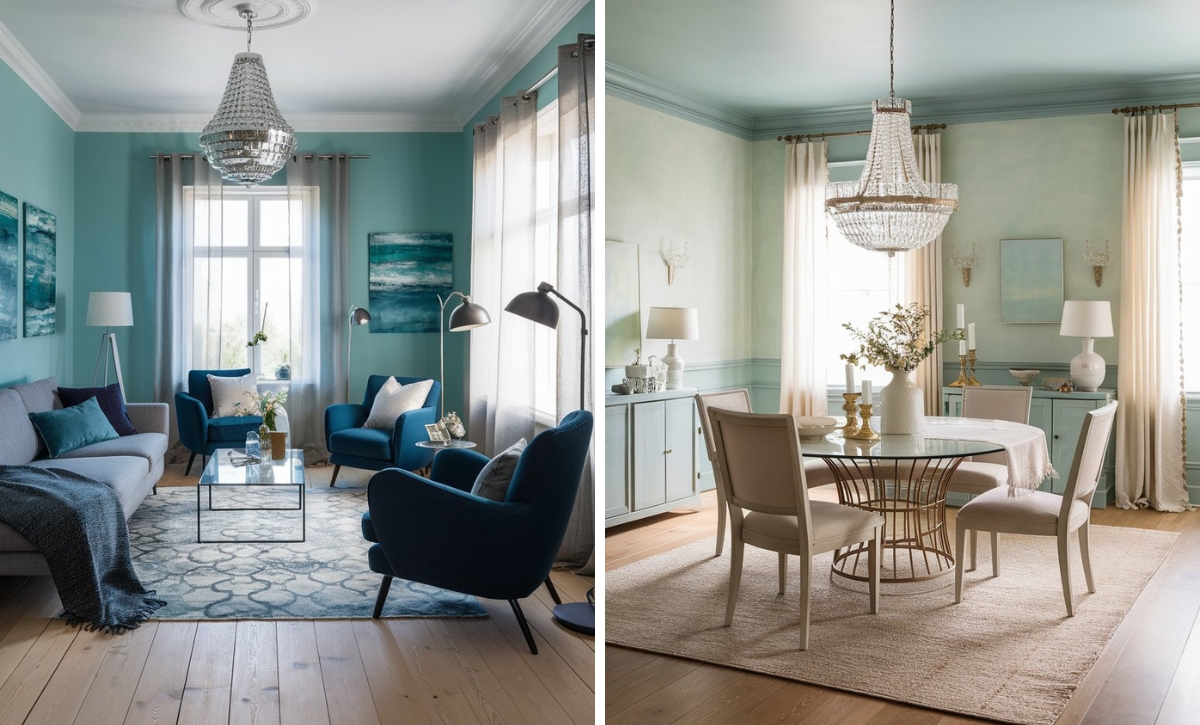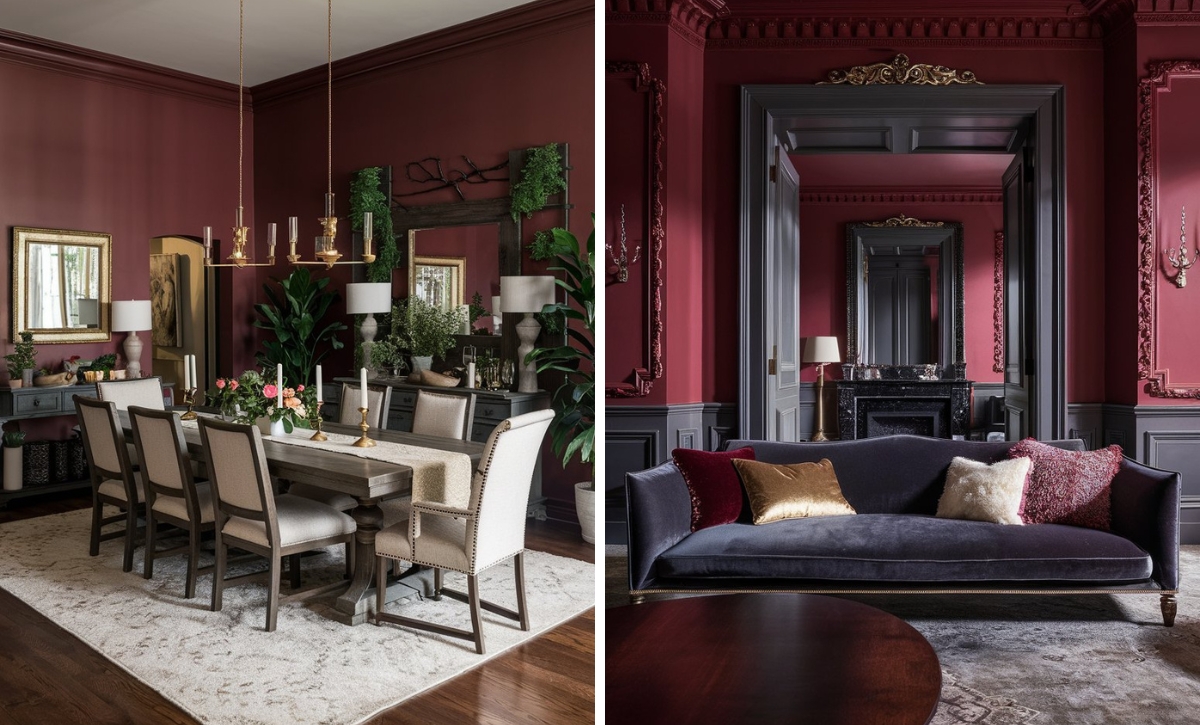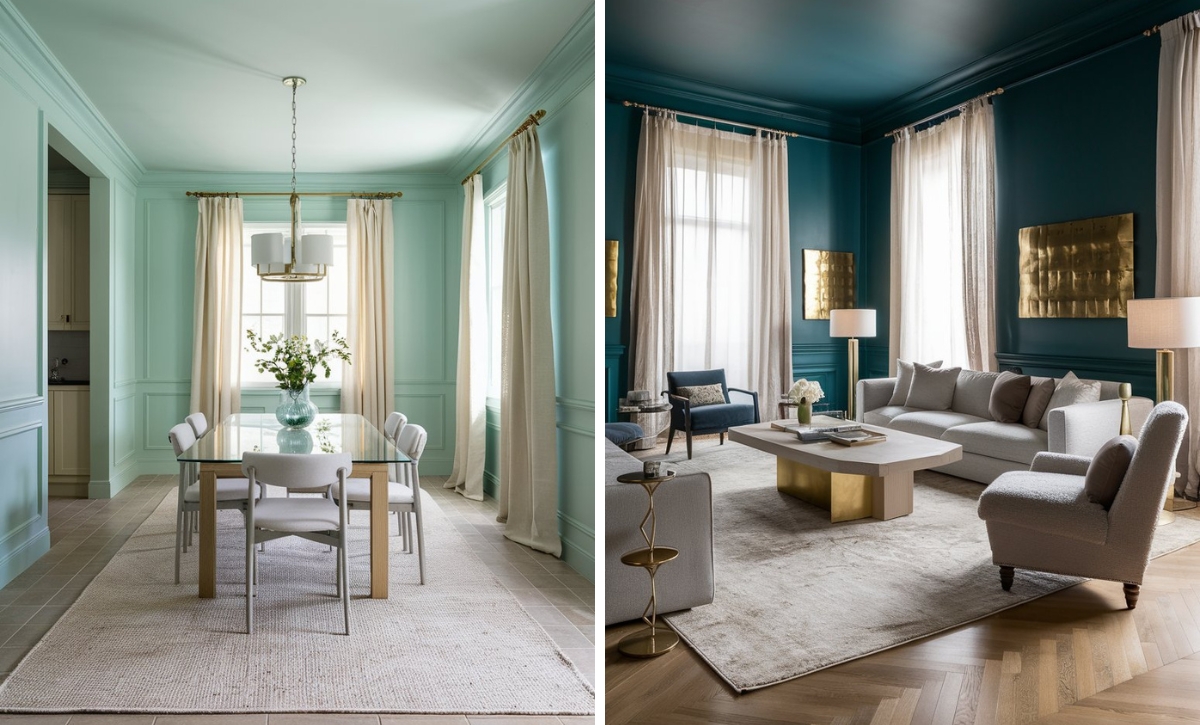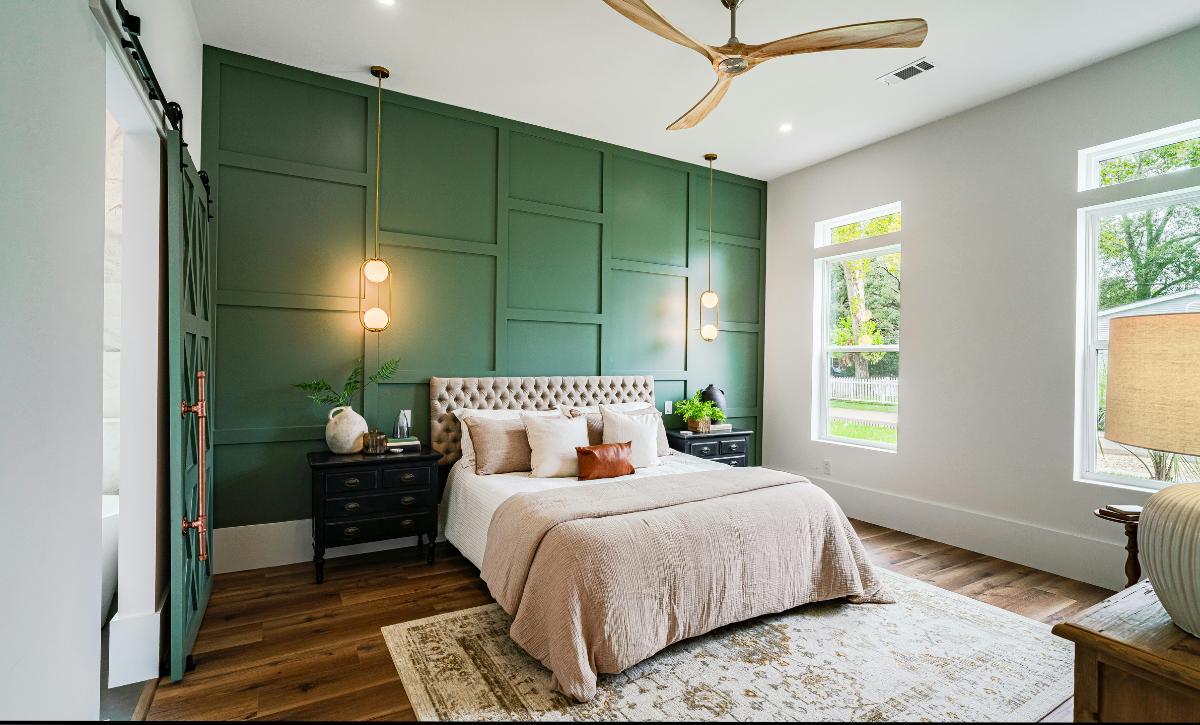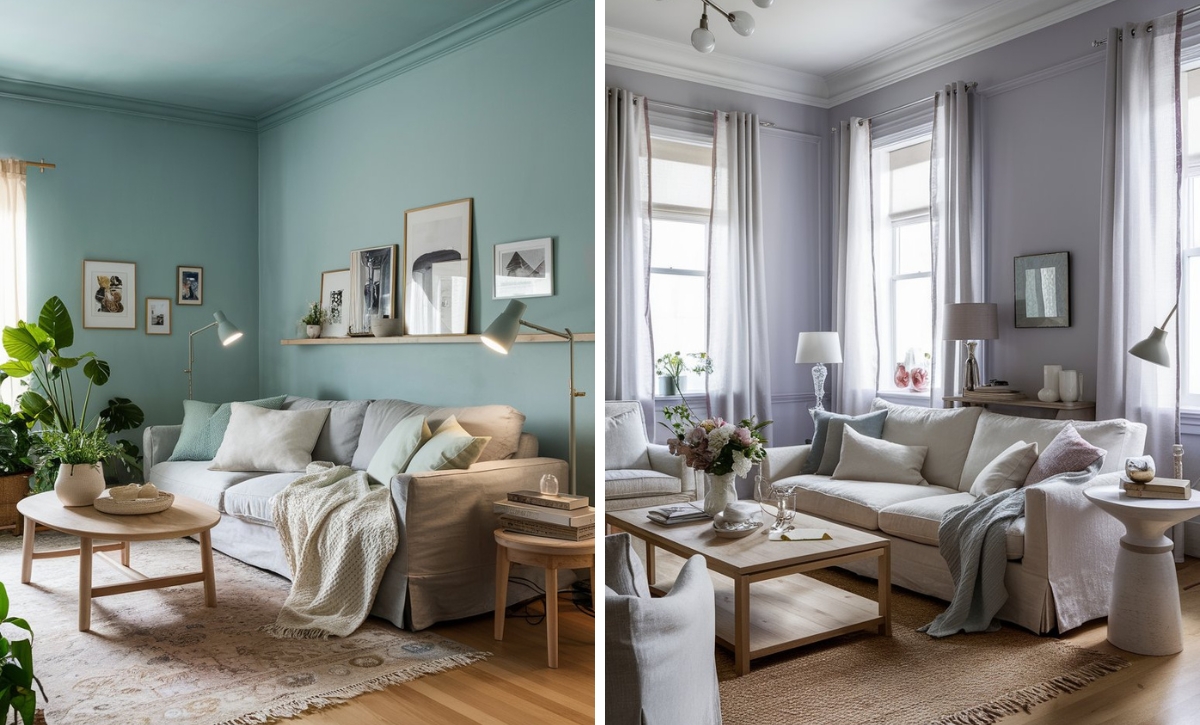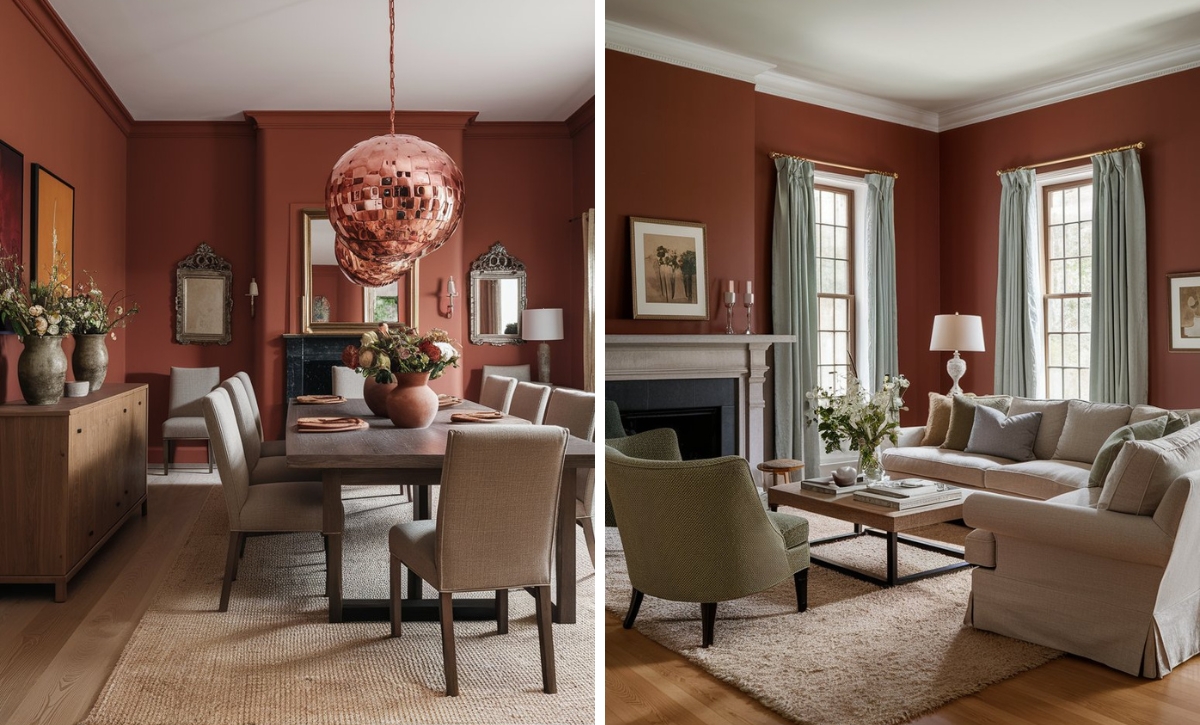Whenever you think of minimalism, simplicity, clutter-free spaces, muted shades, and sleek lines come to mind.
Minimalism operates on the mantra “less is more,” and it’s the ultimate design trend to create a serene and calming atmosphere.
You can apply a minimalist design to any room in your home, and when done correctly, you can transform even the most mundane spaces into more inviting ones.
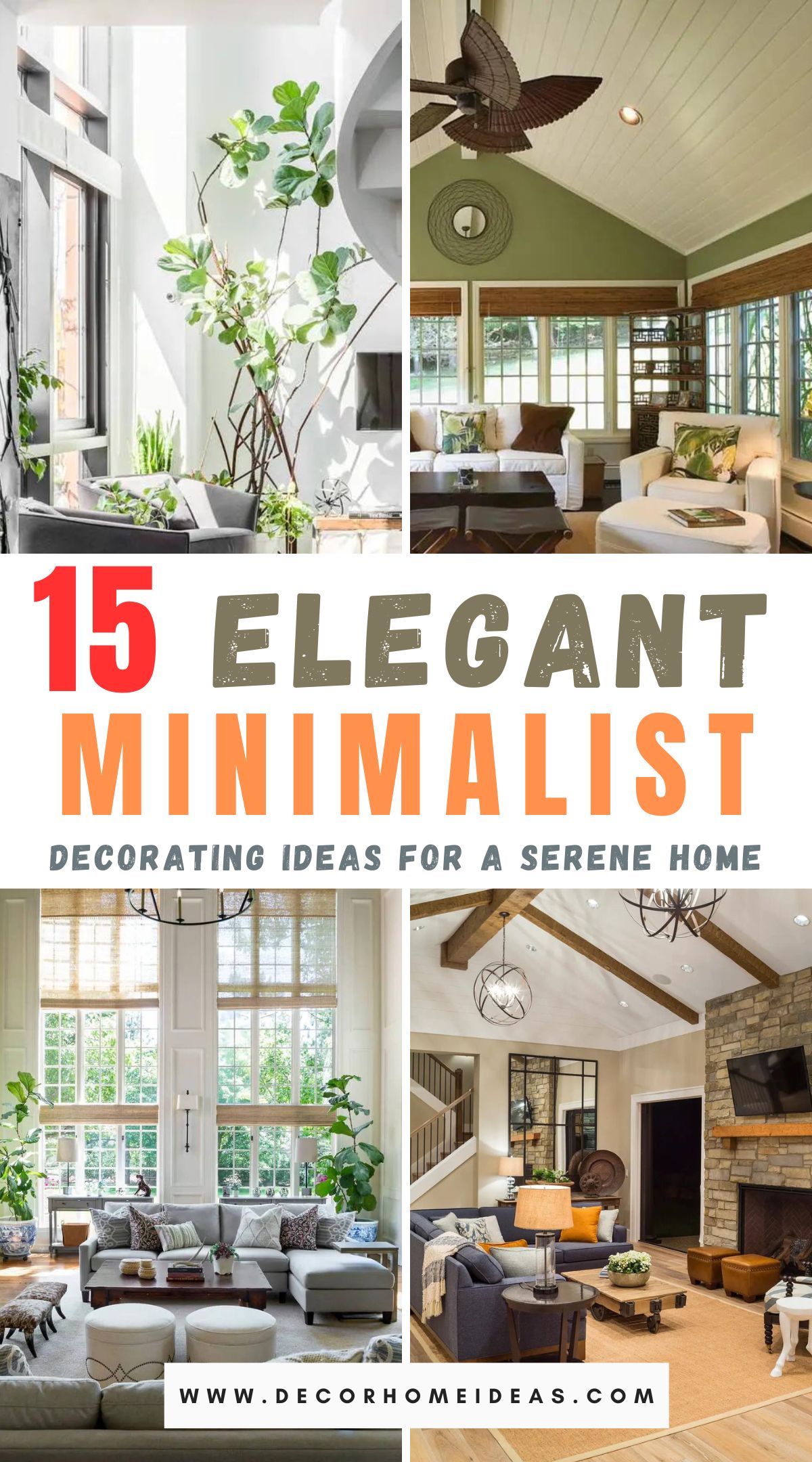
We’ve compiled 15 minimalist decorating ideas to help you create a harmonious living space that encourages peace and simplicity.
Take a look!
1. Liven Up Your Space with Greenery
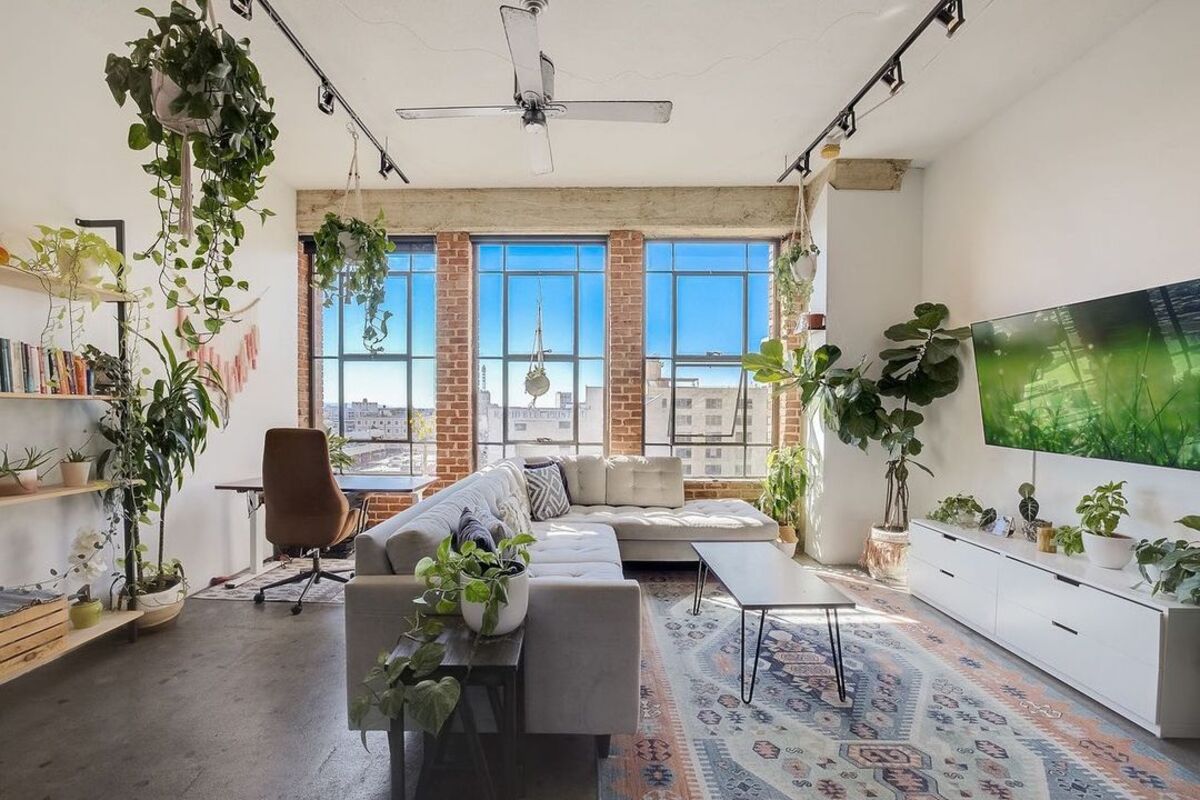
Indoor plants are an excellent way of adding life and freshness to your minimalist space.
Touches of greenery from hanging creeping vines and potted plants add a pop of color to this neutral-saturated palette and provide the much-needed balance.
2. Mix Up Your Palette
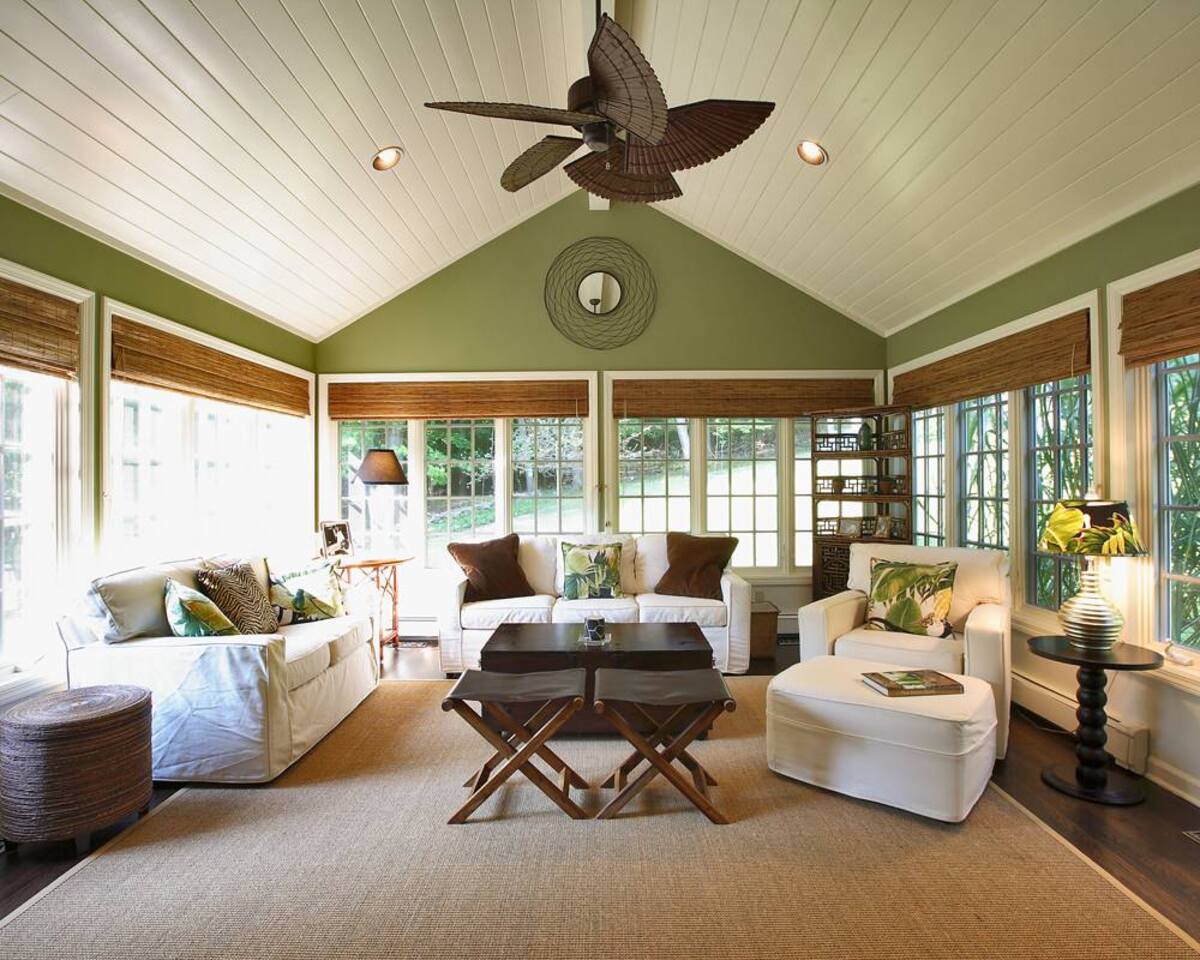
Muted colors and pastel shades are an important foundation for achieving a clean and serene minimalist space.
A layer of olive drab shade separates the organic wooden blinds and white shiplap ceiling, creating a warm balance in the room’s palette. The theme is continued across the room by brown and white furniture as well as accent pieces such as pillows.
3. Utilize Organic Materials
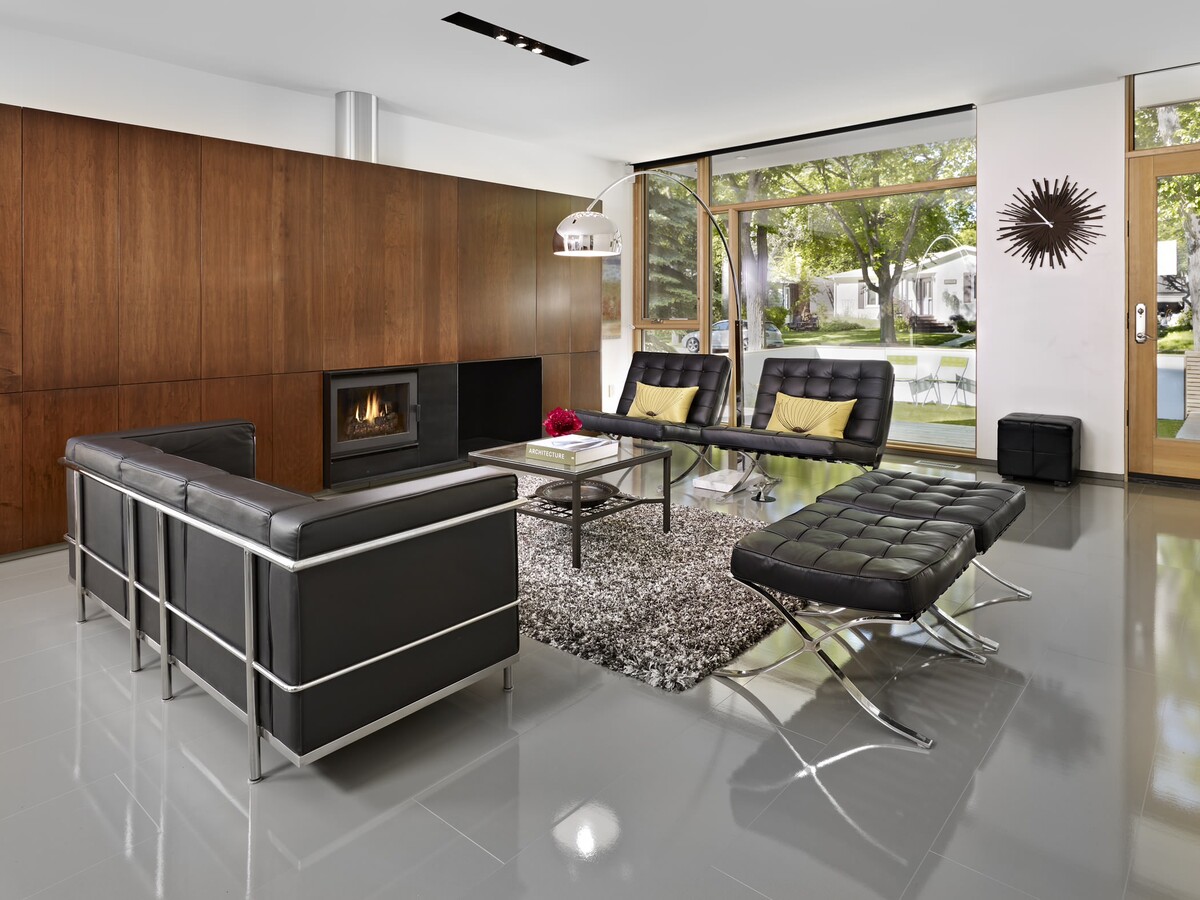
Natural elements such as wood add an organic feel to a room, which can go a long way in helping you achieve your desired minimalist space.
A sleek wooden accent wall contrasts nicely with the white color palette and black furniture, grounding this room with a sense of nature’s beauty. The in-built fireplace adds more to the minimalistic vibe.
4. Make Art Your Focal Point
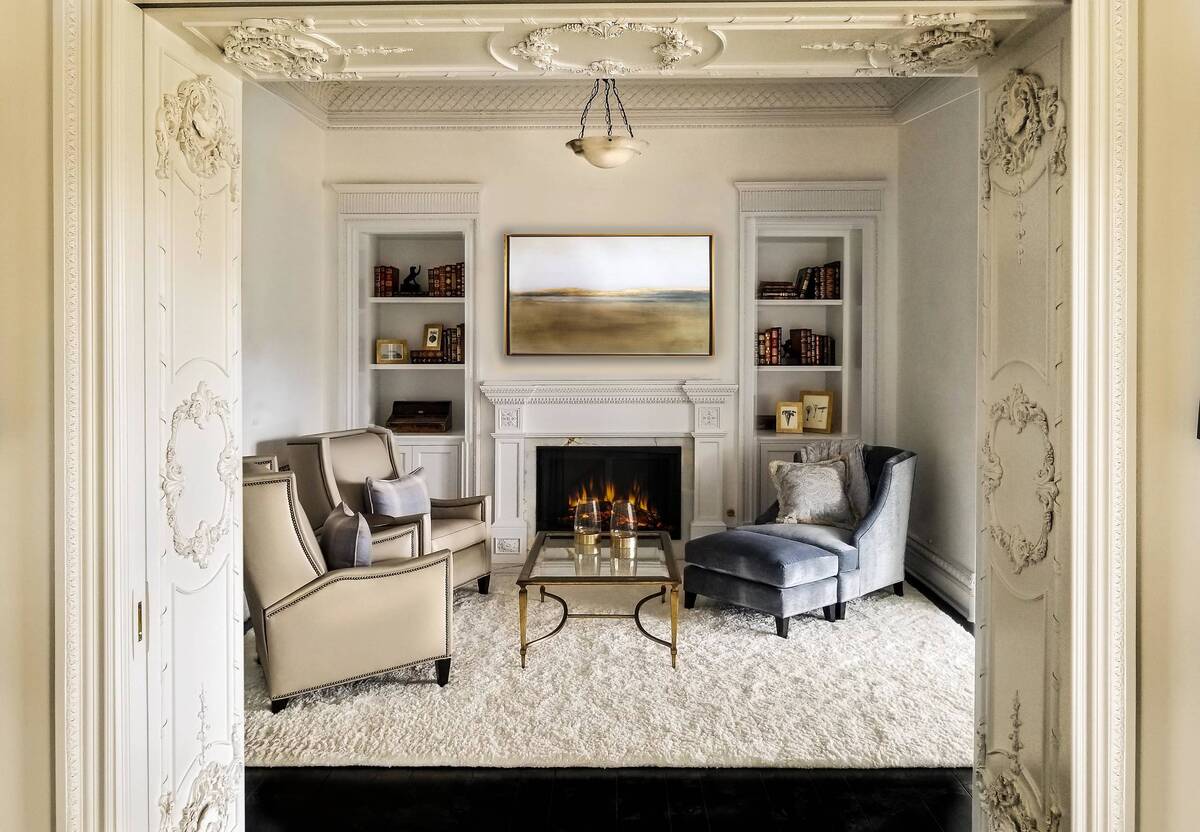
Instead of a TV above the fireplace, hang a beautiful art piece and add personality to your minimalist living space.
The furniture placement in this design creates a visual balance in the minimal decor, while shelves on each side of the fireplace introduce symmetry, bringing a sense of order and harmony.
5. Keep it Simple
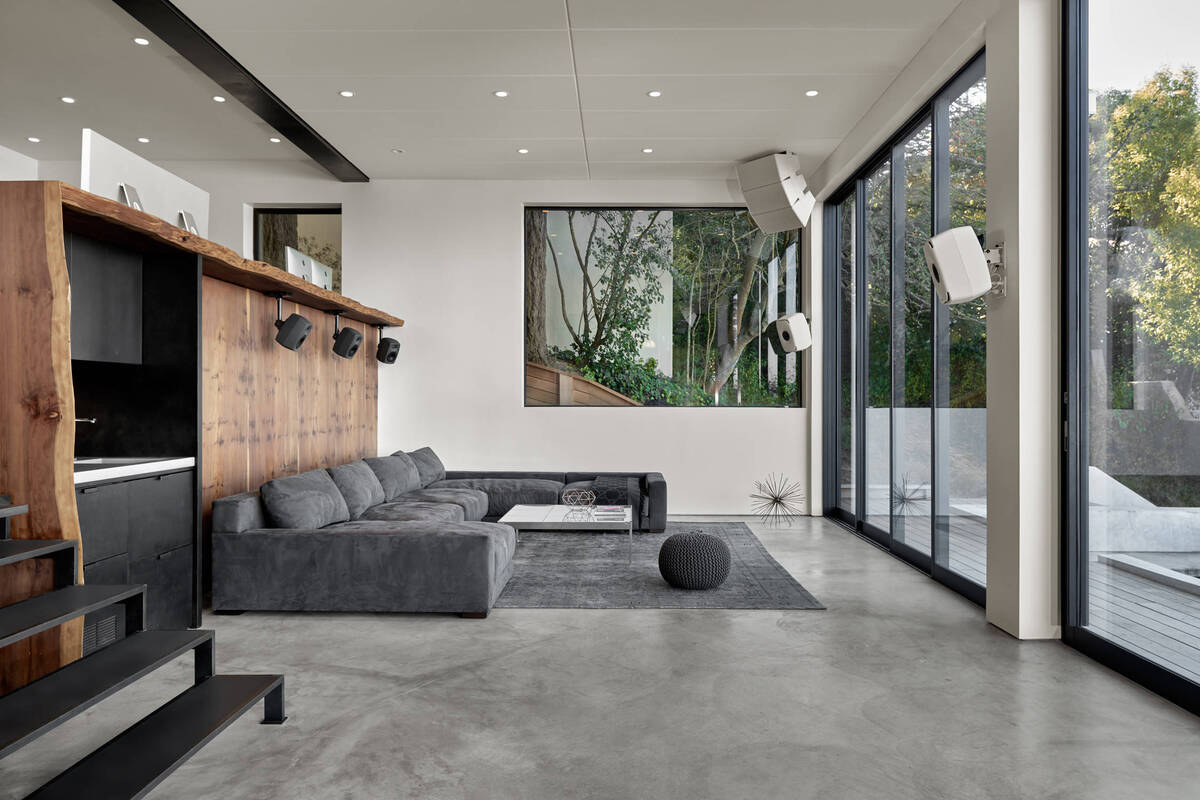
@Knock Architecture and Design
Open space is a key aspect of minimal decor; avoiding overcrowding and keeping walkways open creates a sense of freedom and peace.
The open space in this massive living room offers a visual break from other decor (sectional sofa, wood platform, rug, etc.) and encourages relaxation. Natural light and recessed ceiling lights make this space healthier and more inviting.
6. Let Your Lighting Do the Talking
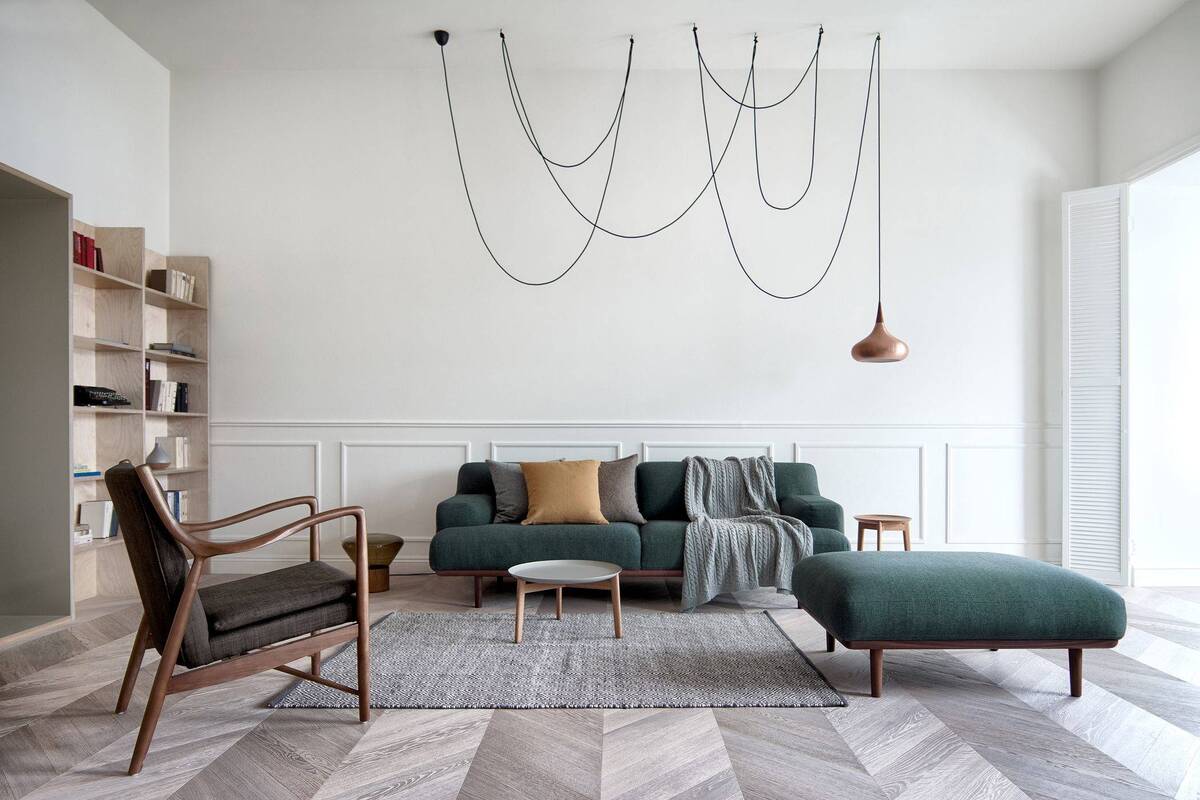
Minimalism can also have a maximalist aspect; you need only keep most of your decor on the minimal side and let one decor piece stand out.
This contemporary pendant light draws the eye with its unique design and evokes a cozy atmosphere with its warm shimmer. The racing green shade on the sofa and ottoman adds a pop of color and contrasts nicely with the monochromatic palette.
7. Create Multiple Nooks
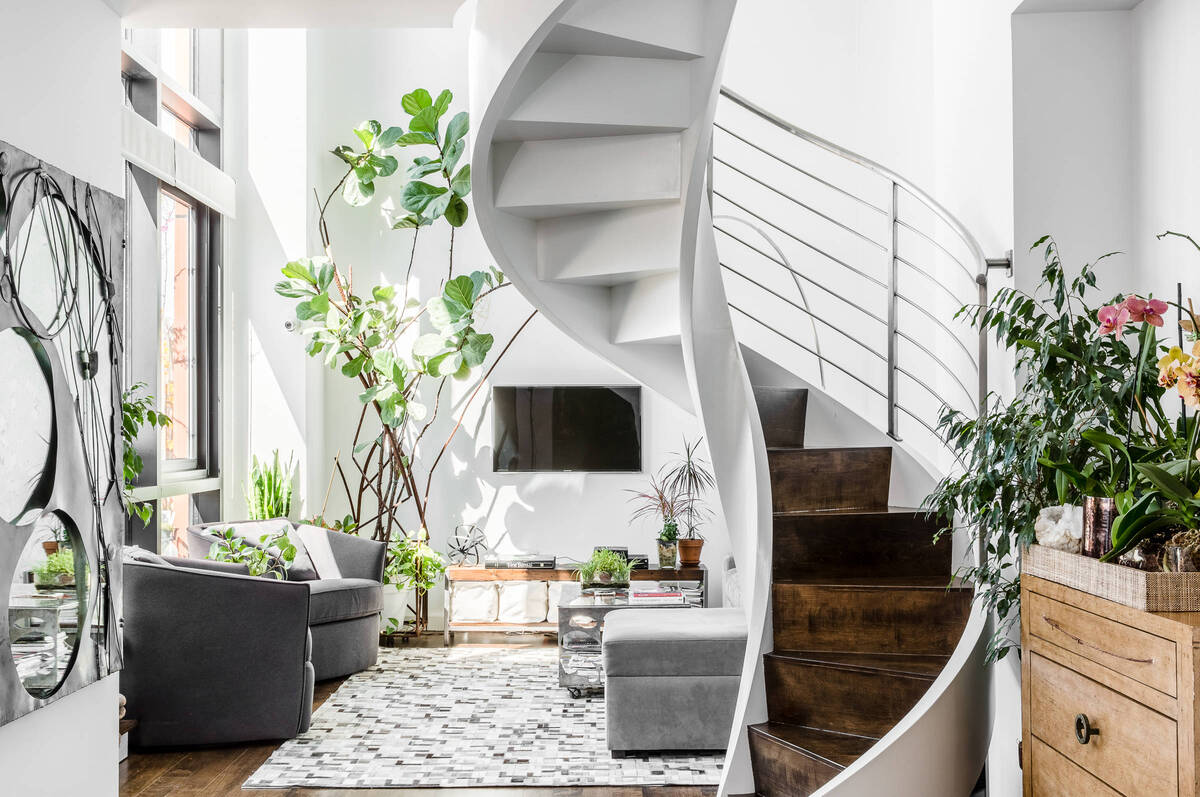
Having well-placed pieces of greenery can create cohesion throughout your space, allowing for a sense of order among elements competing for attention.
Plants in this setup act as focal points and bring other decor items together in a fun and simple way. The wooden floor and staircase add to the earthy and rustic feel.
8. Touch Up with Wallpaper
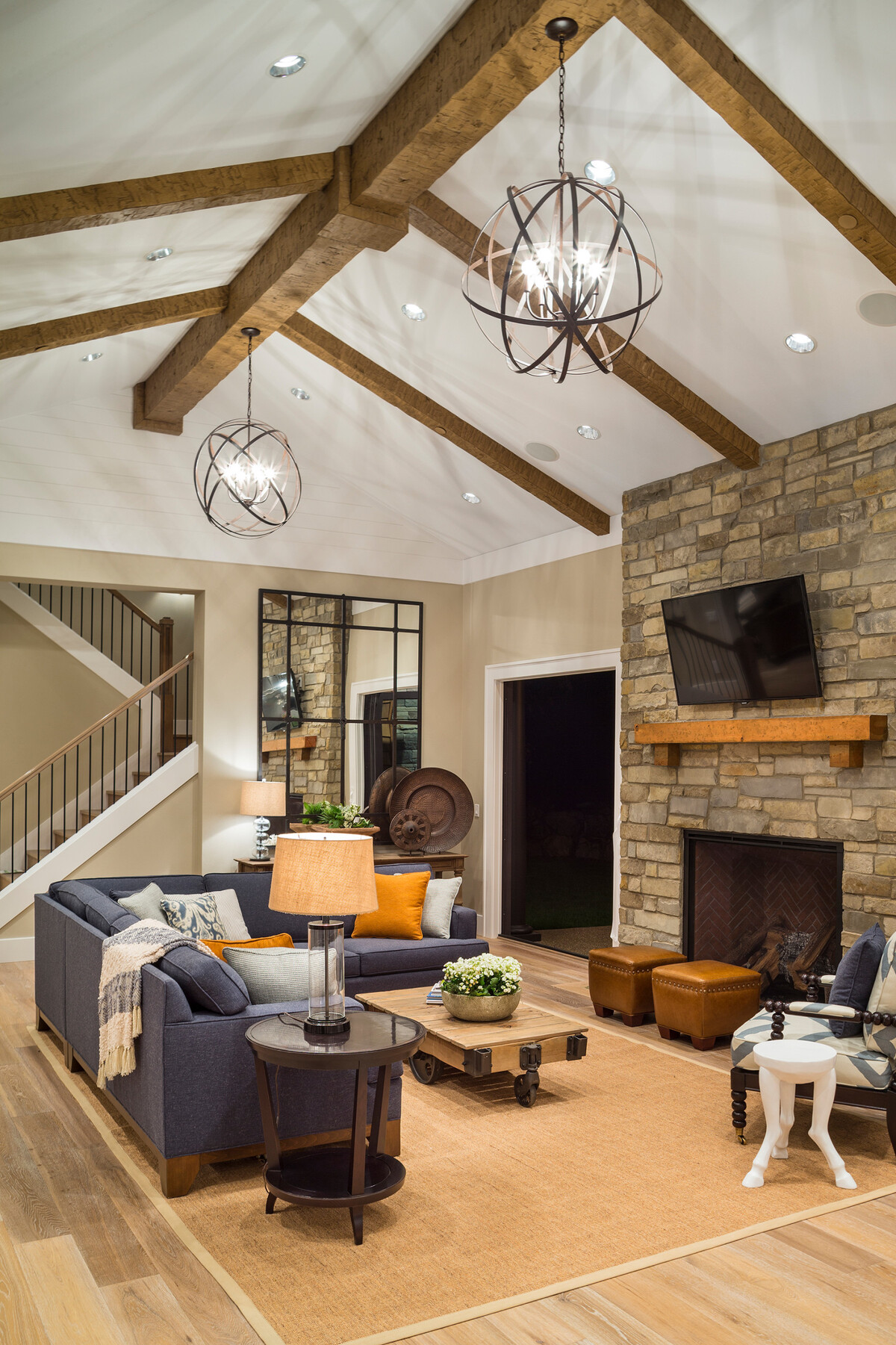
@Alan Mascord Design Associates Inc
The brick-themed wallpaper in this living room adds a playful touch to the minimalist design.
The room’s muted palette on the walls matches the wallpaper’s, creating a continuous look. The muted purple sectional sofa adds color to the design, while wooden ceiling beams, a wooden mantel, and other brown accents complement the theme.
9. Add Glam with Recessed Lights
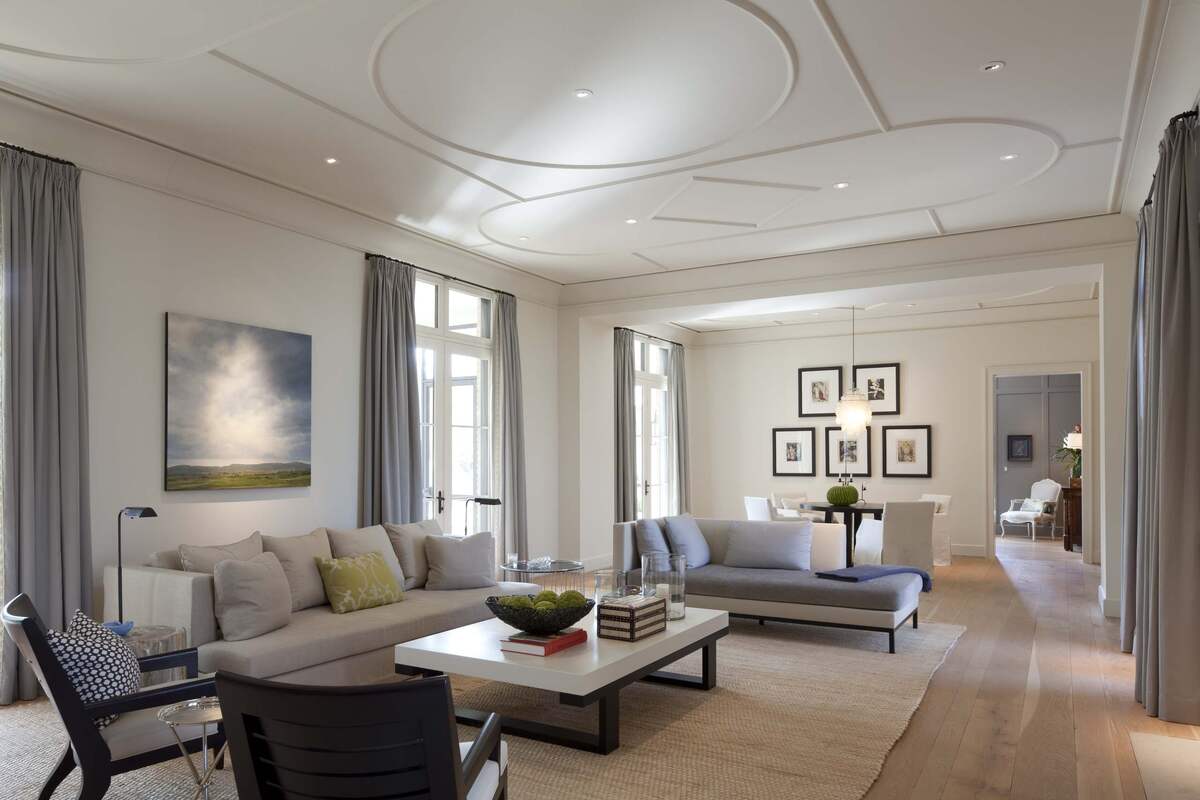
@Cuppett Kilpatrick Architects
The elegant gray curtains in this extensive space complement the room’s muted palette, adding layers and dimension without overwhelming the space.
Recessed ceiling lights contribute further to the minimalist look, while a gallery wall and an art piece personalize the space.
10. Shine with Black and White
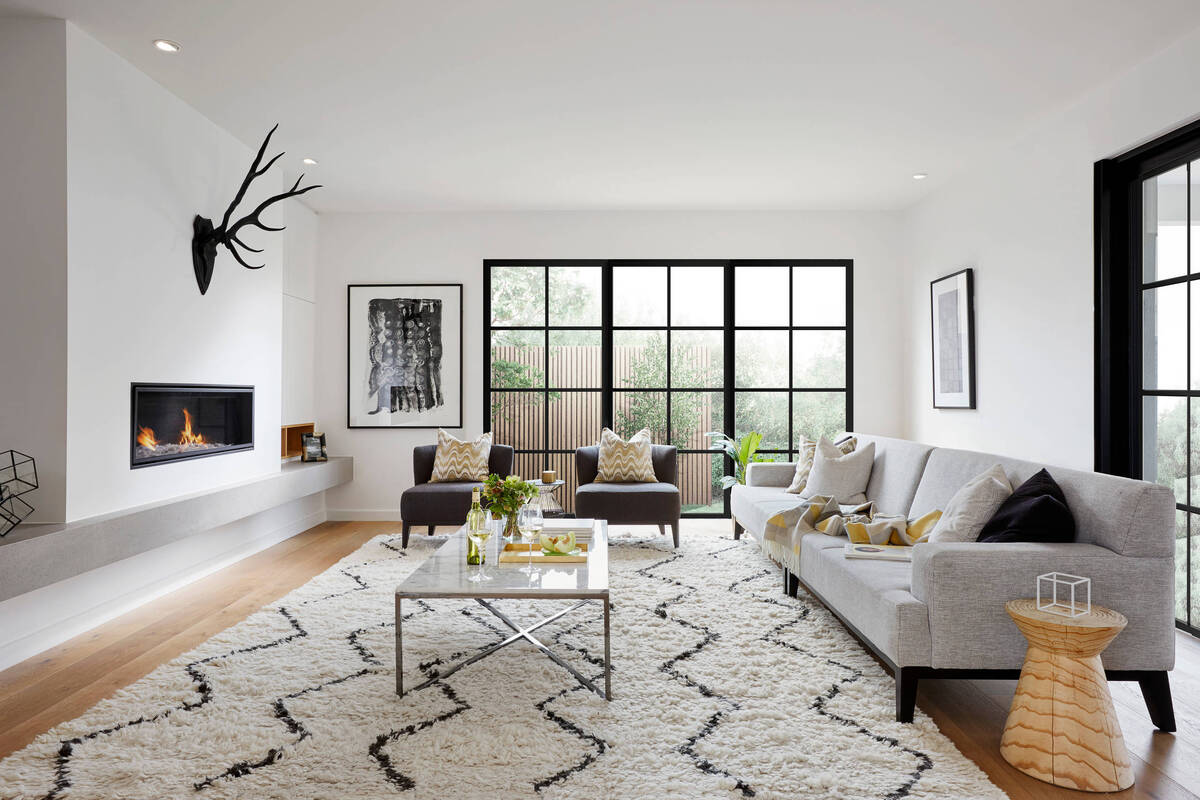
Going with a black-and-white theme throughout your space is an excellent way of promoting a peaceful and balanced feel in your room.
The crisp white walls provide a tidy and tranquil backdrop for the black accent pieces, such as window frames and wall treatments. A contrasting theme is applied to the furniture and accent pillows, while the wooden floor grounds the room.
11. Create Sections
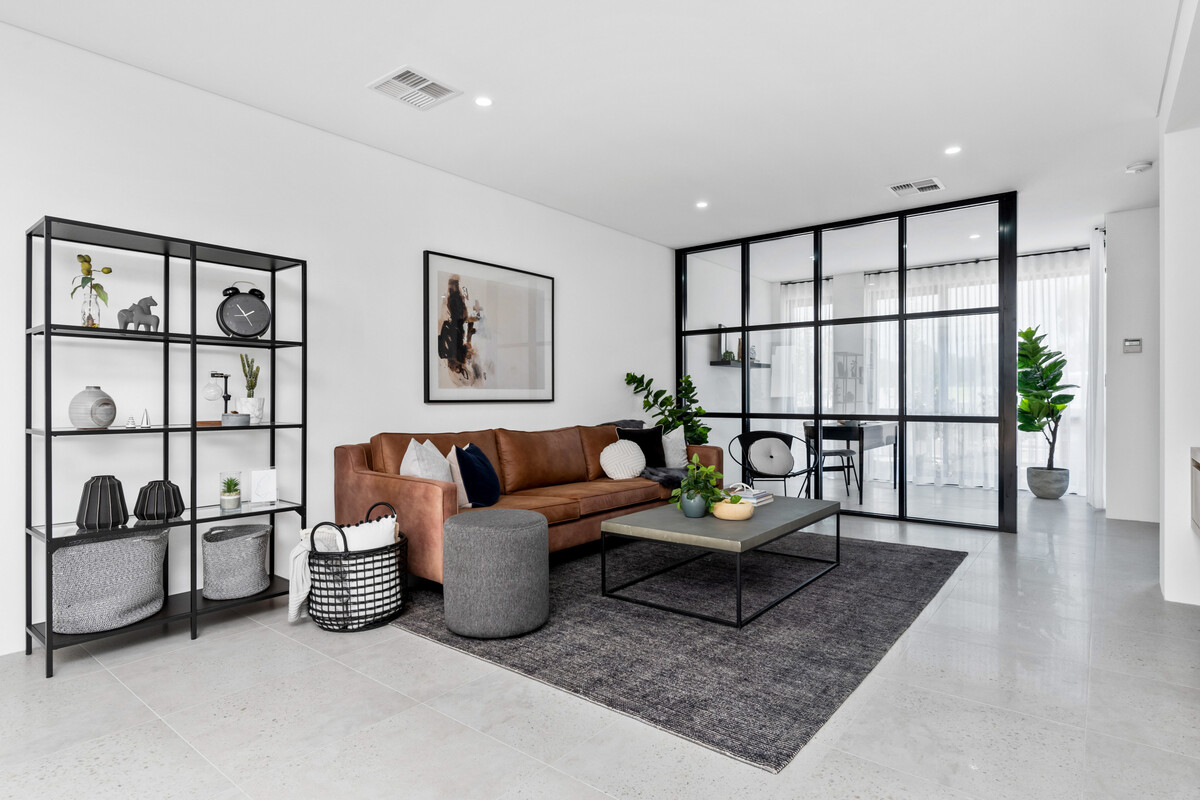
A glass wall with black frames provides a subtle room divider in this bright white living room.
A standalone shelf exhibits a collection of souvenirs, ceramics, and plants, while a gray rug, ottoman, and coffee table complement the dominant white theme. A brown sofa brings the much-needed contrast and color to the design.
12. Define Your Area with Rugs
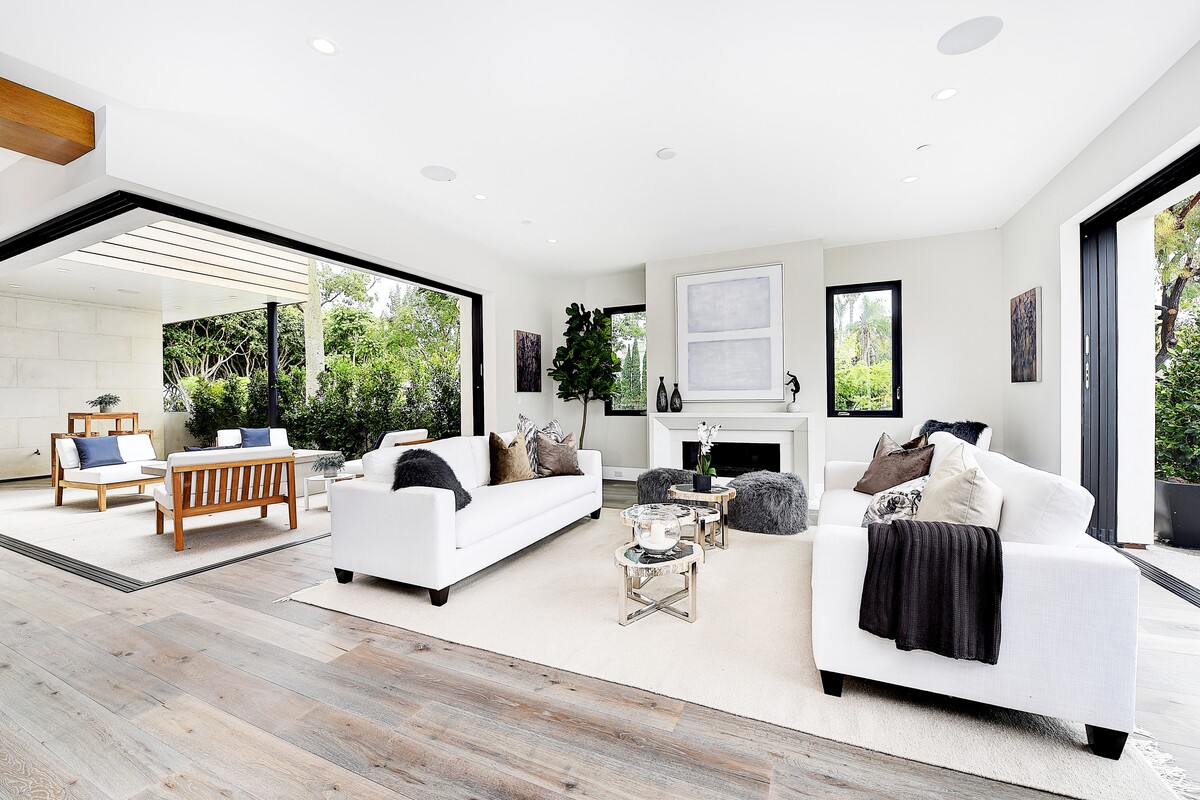
An open floor plan always looks fabulous with a minimalistic approach to its decor.
Symmetry is observed in placing sofas and wooden benches facing one another to initiate those intimate conversations. Rugs that match the room’s theme have been used to define the different nooks in the space, softening the look and creating a visual breathing room.
13. Bring a Maximalist Effect
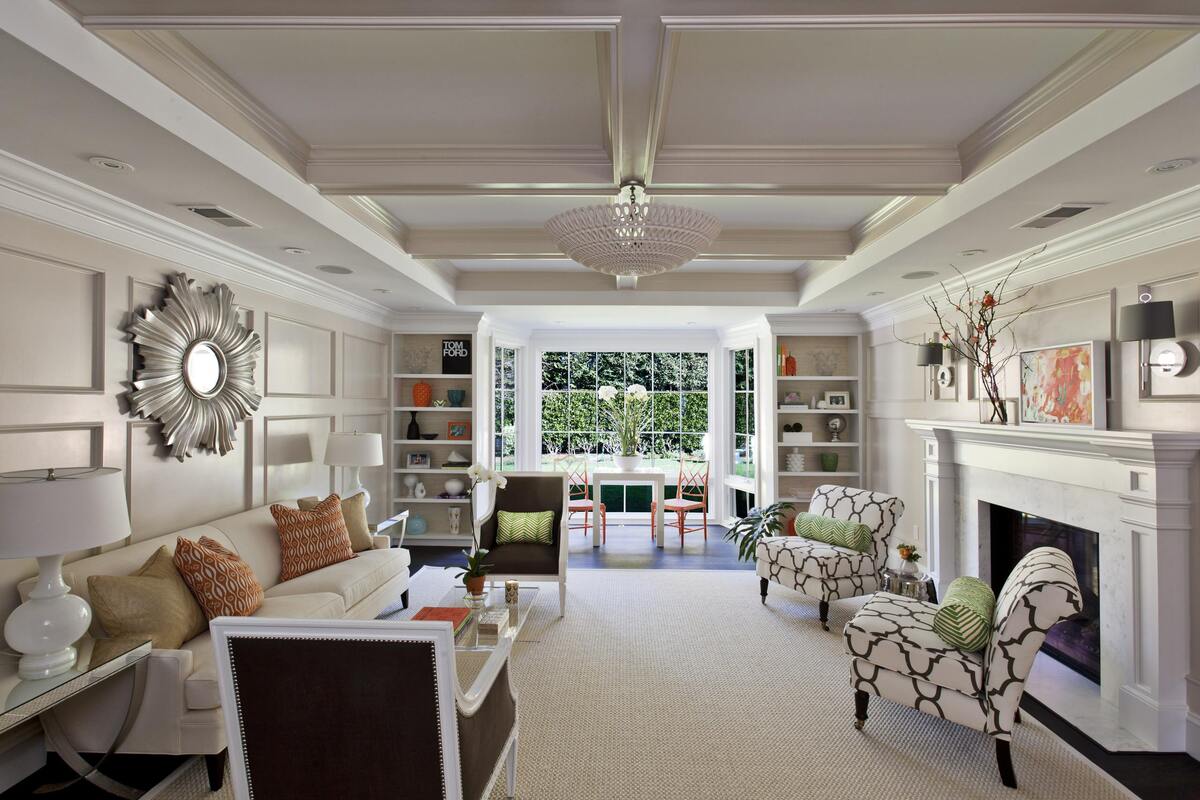
If you have plenty of square footage in your living room, don’t be afraid to incorporate multiple pieces of furniture to fill up the space.
You only need to provide ample distance between these pieces to add a sense of personality and give your room a warm and cozy look.
14. Keep it Subtle and Serene
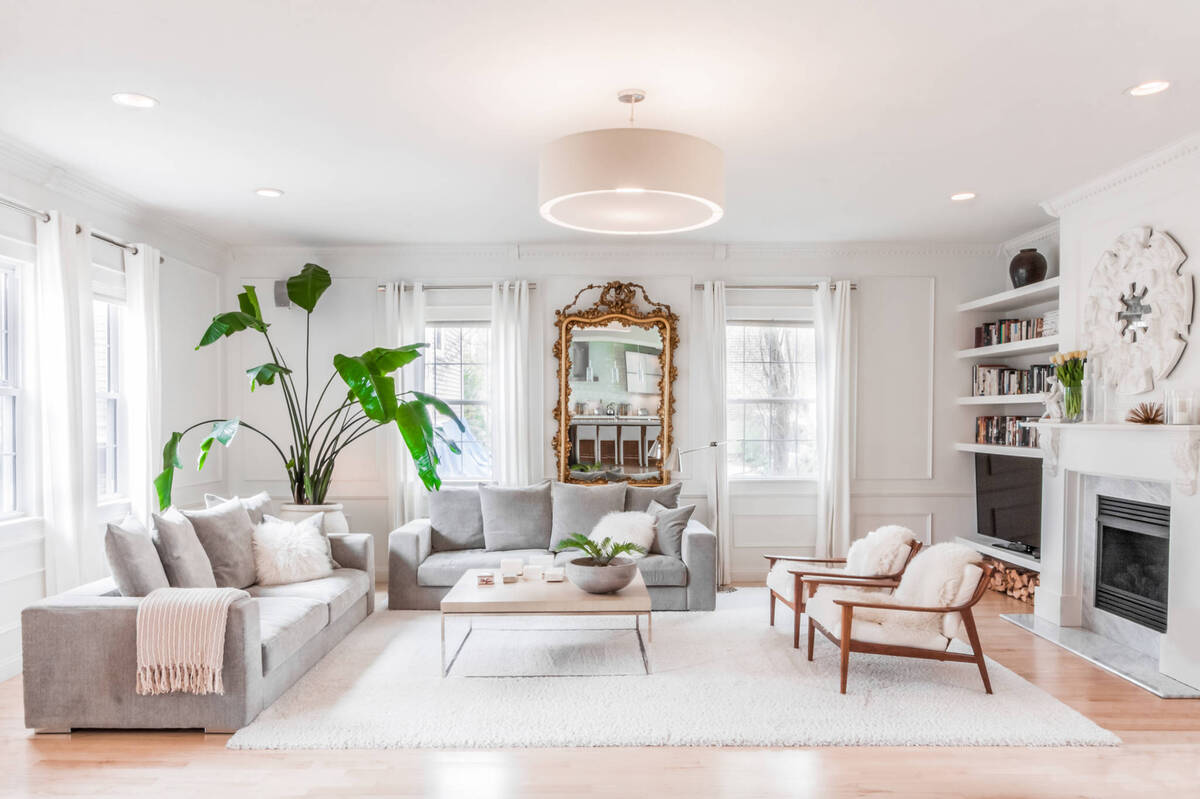
@Melissa Miranda Interior Design
A huge Monstera plant graces the corner of this refined living room, bringing a dash of color and acting as a focal point.
Muted shades of white and gray on the walls and sofas are complemented by pastel shades of blush pink on the light fixture, throws, and pillows.
15. Make the Most of Natural Light
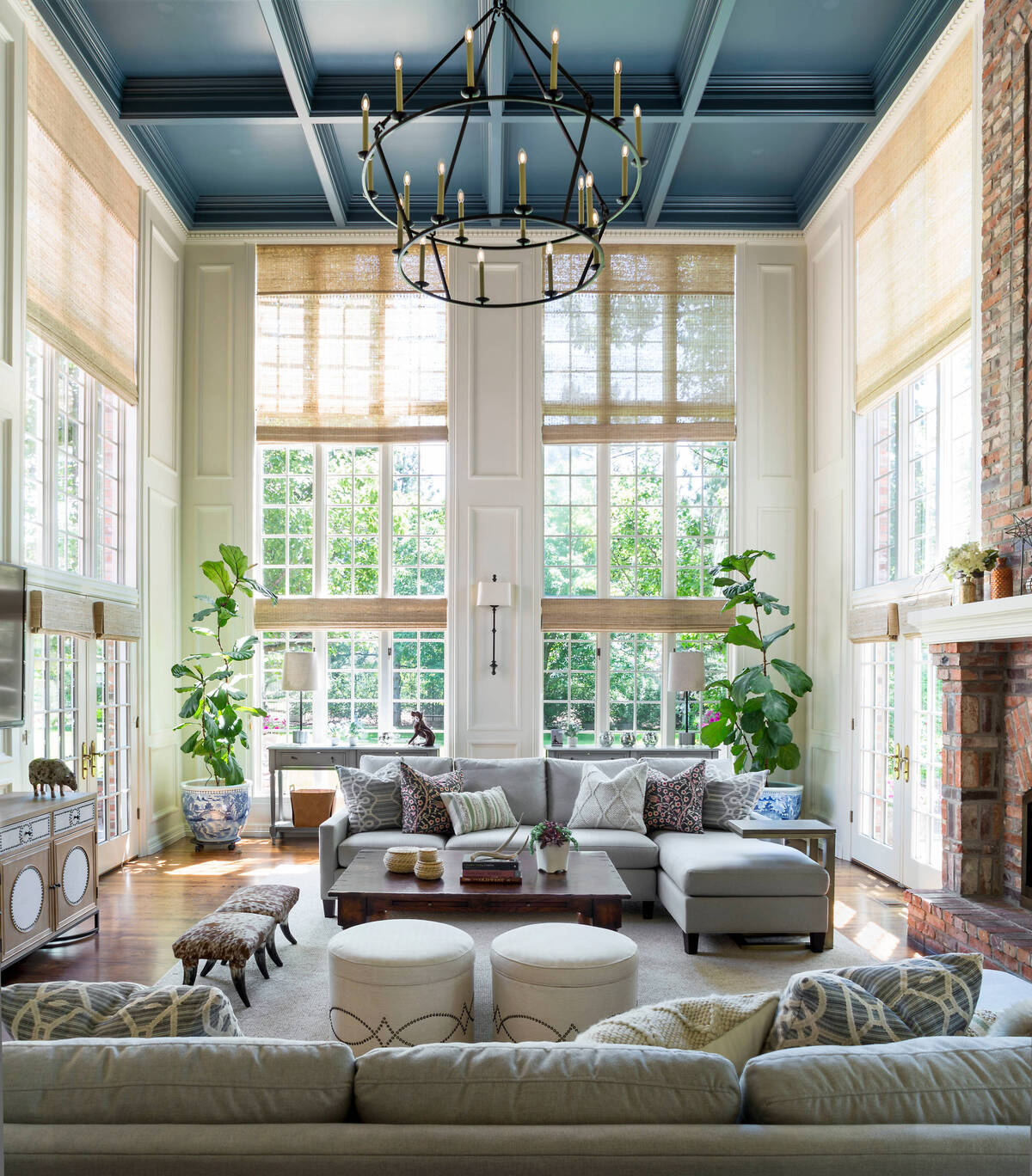
Natural light is one of the hallmarks of minimalist decor. It usually has a significant impact on the ambiance and atmosphere of a room and has a unique quality that you can’t replicate with artificial lighting.
The huge windows in this design allow plenty of natural light to come in, contributing to a warm and serene interior. The blinds on the windows diffuse and soften the light while reducing glare and maintaining some privacy.

